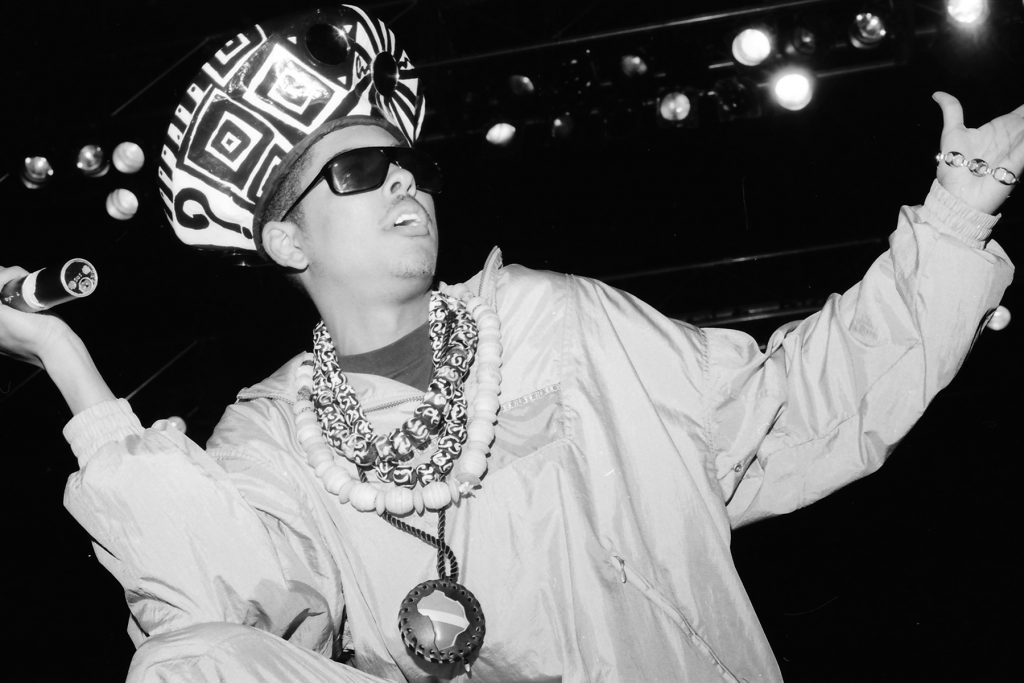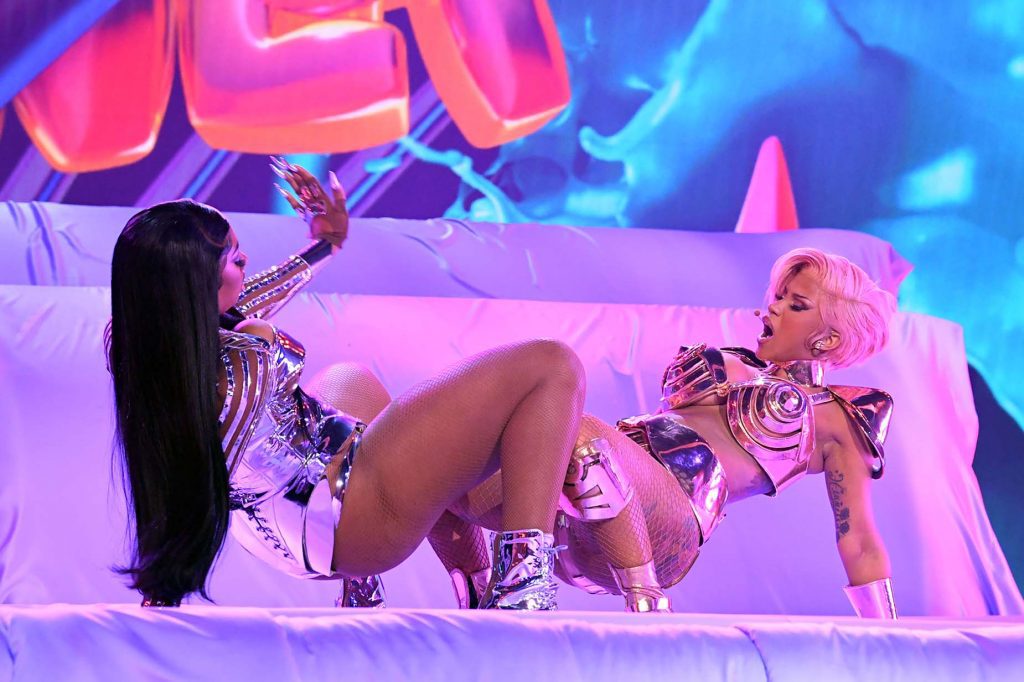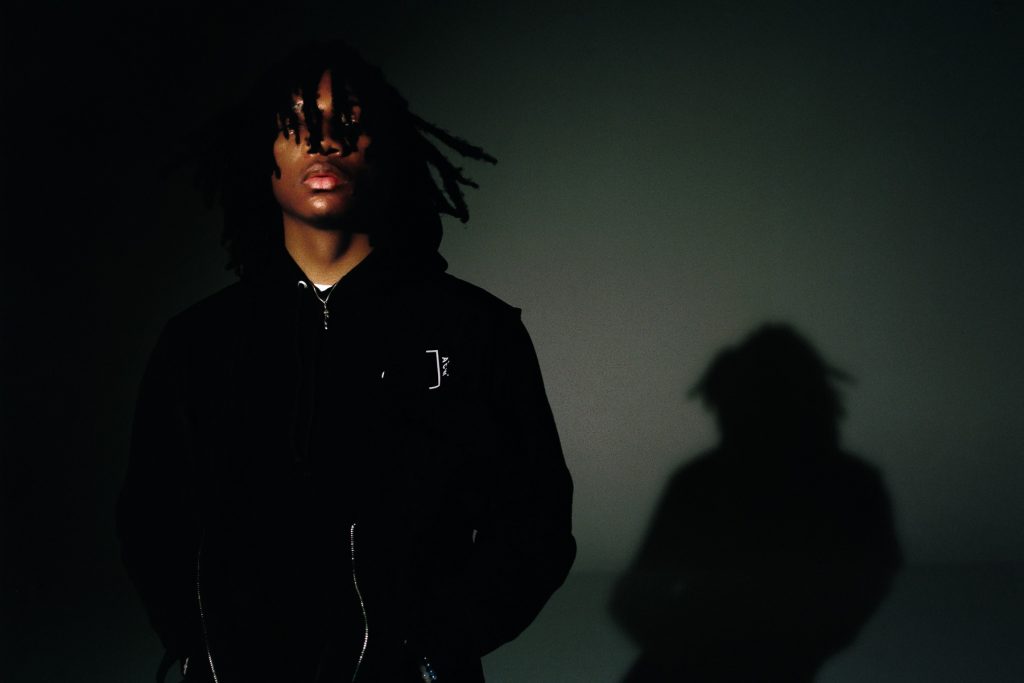
A Tribute to Shock G, Hip-Hop’s Freest Spirit
If you’re in a Burger King bathroom today, please get busy in honor of the great Shock G. The world is mourning for the legendary Digital Underground MC, who died Thursday at only 57. Gregory Jacobs had many aliases — Shock G, Humpty Hump, Piano Man — but he always represented the wildest side of the hip-hop imagination, with classics like “The Humpty Dance,” “Return of the Crazy One,” and “Doowutchyalike.” He was a true original. As Chuck D said, “Such a beautiful free mind Brother.” Shock stood for everything playful and open-minded in hip-hop, an agent of chaos, an Eshu-Elegba trickster god in Groucho drag. And he made Digital Underground sound like a party where everybody was welcome.
Shock had his own style right from the beginning. As he said in Brian Coleman’s essential 2007 hip-hop history Check the Technique, “I didn’t go into things with the ladies with the ‘I just want to fuck you’ vibe. I brought the perv tone: bolt the doors down, lock people out, get the whipped cream and the cherries, and let’s make a night of it. At that time, lyrically, there wasn’t anything romantic in the rap world, for the girls. I wanted to bridge the gap between Prince and hip-hop, a European hip-hop vibe like with [Prince’s] ‘Under the Cherry Moon.’”
blogherads.adq.push(function () {
blogherads
.defineSlot( ‘medrec’, ‘gpt-dsk-tab-article-inbody1-uid0’ )
.setTargeting( ‘pos’, [“mid-article”,”mid”,”in-article1″,”mid-article1″] )
.setSubAdUnitPath(“music//article//inbody1”)
.addSize([[300,250],[620,350],[2,2],[3,3],[2,4],[4,2]])
;
});
Shock G’s “perv tone” was a radical aesthetic for late Eighties hip-hop, with its strict gender codes. This was a time when Eazy-E proclaimed, “I might be a woman-beater, but I’m not a pussy-eater.” That wasn’t Shock’s style. “We were like: ‘We eat pussy, and we admit it.’ That was a big deal at the time — we even had a meeting in the studio about whether we should say it or not. We said, ‘We don’t need it, we just eat it.’ We knew women would love that, of course.”
That attitude was front and center on Digital Underground’s 1989 breakout single, “Doowutchyalike.” Bay Area rap didn’t get much attention in the rest of the country, but “Doowutchyalike” blew minds coast to coast. It was clearly inspired by Shock’s idols George Clinton and Prince, but it was also totally eccentric. Shock and Money B celebrated a sexual and musical orgy where anything could happen. Shock urged the ladies in the house, “See a guy you like, just grab him in the biscuits!”
“Doowutchyalike” had a simple but groundbreaking party code: talk how you like, drink what you like, grab who you like, scratch where you like, itch if you like. Halfway through, Shock goes into his alter ego as Piano Man and takes over for a live-not-sampled piano solo from Al B. Sure’s current R&B hit “Nite and Day.” No uptight jitters about sex, no misogyny, no rules. At the end, Shock shrugs, “Just havin’ fun, y’all, and if you think that it’s wrong, you got to admit it’s a new type of song.” It was.
Jacobs, a keyboardist-drummer with a background in jazz and funk, saw Digital Underground as a collective, with Chopmaster J, Schmoovy-Schmoov, Money B, and many more. As Money B says in Check the Technique, “Digital Underground was always Shock’s vision, but people could always add things. He was in control, but he was still open-minded.” He wanted it to be an all-star team in the P-Funk mode. “Shock was always so eclectic — he was such a free spirit. I was more straight-up hip-hop, more of a b-boy, but Shock’s thing was always more on the Parliament-Funkadelic tip.”
Shock definitely brought the “perv tone” to the Underground’s debut album Sex Packets. The hit was “The Humpty Dance,” which blew up into the summer jam of 1990, one of the most terrible years ever for pop radio. “The Humpty Dance” was the one song everybody could agree on, the one you could put on at a house party six or seven times and know that nobody was walking out. (At one summer bash, I followed it up with Public Enemy’s “911 Is a Joke” and watched every female on the dance floor leave the room.) The bass was massive: D.U. recorded it around the time of the 1989 San Francisco earthquake, which inspired the beat.
blogherads.adq.push(function () {
blogherads
.defineSlot( ‘medrec’, ‘gpt-dsk-tab-article-inbody2-uid1’ )
.setTargeting( ‘pos’, [“mid-article2″,”mid”,”in-article2″,”mid-article”] )
.setSubAdUnitPath(“music//article//inbody2”)
.addSize([[300,250],[300,251],[620,350],[2,4],[4,2],[3,3]])
;
});
Shock G turned Humpty Hump into every party’s messiest monster, a big fan of lumpy oatmeal and ticklish rears. As he boasted, “I’m a freak, I like the girls with the boom/I once got busy in a Burger King bathroom!” Humpty lived large in a fake Groucho Marx nose, a coonskin cap, horn-rim glasses, a cigar, and his demented grin, as he yelled, “I get stupid! I shoot an arrow like Cupid! I use a word that don’t mean nothing, like ‘loopid’!”
Humpty evolved over the years: He got married in “Tie the Knot,” and spoke up for his nose as an Afrocentric statement in “No Nose Job.” The Underground dropped their finest album in 1993, The Body-Hat Syndrome. (The title is a riff on “jimmy hat” — it’s about the kind of paranoia that makes you insulate yourself from the world, a theme that resonates today.) But Shock goes Full Humpty in “Return of the Crazy One,” one of his funniest sex romps: “I put away the broom and we broke out the vacuum!”
Tupac Shakur became part of the Digital Underground scene, launching his whole career. He started out as a roadie, but took center stage in “Same Song” and scored his first hit with the Shock G production “I Get Around,” the most purely playful thing he ever did. Shock produced his debut 2Pacalypse Now. The Underground kept going for 20 years, while Jacobs did a 2004 solo album, Fear of a Mixed Planet. He worked with his heroes — he mixed Prince’s 1998 “Love Sign,” and joined Clinton’s P-Funk All-Stars, doing a set at Woodstock ’99.
Through it all, Shock G kept that spirit of intellectual hedonism and musical experimentation. He always gave Clinton credit. “P-Funk was theatrical, operatic, feel-good African-American music,” he told Coleman in Check the Technique. “They were the Grateful Dead of the black world. Their concerts were more like rituals. And we wanted to tap into some to that and pay tribute to it.”
But he was always an original and an innovator in his own right. His death is a brutal loss for hip-hop, so soon after DMX, Black Rob, and MF DOOM. Here’s to a free spirit who brought out the loopid in us all. Shock G always sounded ahead of his time, and still does. Pour out some lumpy oatmeal for one of the greats.
blogherads.adq.push(function () {
blogherads
.defineSlot( ‘medrec’, ‘gpt-dsk-tab-inbodyX-uid2’ )
.setTargeting( ‘pos’, [“mid”,”mid-articleX”,”in-articleX”,”mid-article”] )
.setSubAdUnitPath(“music//article//inbodyX”)
.addSize([[300,250],[300,251],[3,3],[620,350]])
.setLazyLoadMultiplier(2)
;
});




